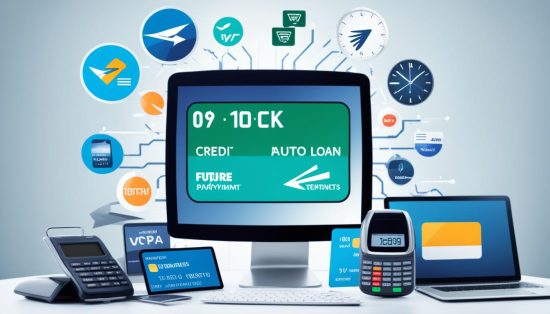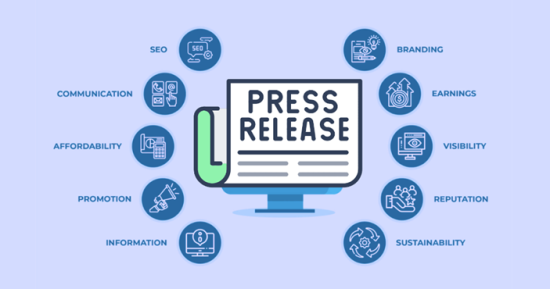
Did you know that missing just one auto loan payment can have a significant impact on your financial well-being? Whether it’s due to unexpected circumstances or temporary financial hardships, being late on your auto loan has serious consequences. Here, we will explore the various factors that determine how late you can be on an auto loan. We will discuss the consequences of late payments, the impact on your credit score, and the potential for loan default. Here, provide tips on negotiating with your lender and ways to catch up on late auto loan payments.
The Grace Period for Auto Loans

When it comes to managing your auto loan, understanding the grace period is crucial. The grace period is the timeframe after the due date of your auto loan payment during which you can make the payment without incurring any penalties. It provides you with a buffer to ensure timely payment and avoid negative consequences.
The length of the grace period can vary depending on the terms and conditions of your specific auto loan agreement. It’s important to review your loan agreement or contact your lender to determine the exact duration of the grace period for your loan. This will enable you to plan your payments accordingly and avoid any unnecessary charges.
Consequences of a Missed Auto Loan Payment
Missing a payment on your auto loan can have serious repercussions. This section will explore the immediate impacts on your credit score, the late fees and additional charges you may face, and the potential risk of loan default. Understanding these consequences is crucial for safeguarding your financial stability.
Immediate Impacts on Credit Score
One of the immediate consequences of a missed auto loan payment is the negative effect on your credit score. Your credit score is a reflection of your creditworthiness and plays a crucial role in your financial life. A missed payment can lower your credit score and make it harder for you to obtain credit in the future. This can affect your ability to secure loans, credit cards, and even housing or job opportunities.
Late Fees and Additional Charges
In addition to the impact on your credit score, missing an auto loan payment can result in late fees and additional charges. Lenders typically impose fees for late payments, which can vary depending on the terms of your loan agreement. These fees can quickly add up and further strain your finances.
Potential for Loan Default
If you continue to miss auto loan payments, there is a risk of defaulting on the loan. Loan default occurs when the borrower fails to meet the repayment obligations as outlined in the loan agreement. Defaulting on a loan can have severe consequences, including the potential repossession of your vehicle and even legal action taken against you by the lender.
The Timeline of Late Auto Loan Payments
Late auto loan payments can have serious consequences. It is essential to understand the timeline of late payments to avoid further financial difficulties. This section will outline the different stages and time frames associated with late auto loan payments.
1. Grace Period: When you first miss an auto loan payment, most lenders provide a grace period. This period allows you to make the payment without incurring any penalties or fees. The length of the grace period varies depending on the lender and the terms of your loan agreement. It is important to check your loan documents or contact your lender to understand the specific grace period for your auto loan.
2. Late Payment Reporting: Once the grace period expires and you still haven’t made the payment, the lender will typically report the late payment to the credit bureaus. This reporting can have a negative impact on your credit score, which can affect your ability to obtain credit in the future. It is crucial to make your payments on time to avoid damaging your credit.
3. Additional Charges: As your auto loan payment becomes further overdue, the lender may charge late fees or additional penalties. These charges can quickly add up and make it even more challenging to catch up on your outstanding payments. It is important to review your loan agreement to understand the fees associated with late payments.
4. Potential for Repossession: If you continue to miss auto loan payments, the lender may initiate the repossession process. Repossession involves the lender taking possession of the vehicle due to non-payment. This can have significant consequences, including the loss of your vehicle and further damage to your credit. It is crucial to communicate with your lender and explore options to prevent repossession.
How Late Can You Be on an Auto Loan Without Penalty?
Understanding your auto loan’s grace period is crucial to avoid penalties or fees for late payments. Most lenders offer a grace period after the due date, during which you can make payments without incurring penalties. However, interest may still accrue, so prompt payment is advisable. To determine your specific grace period, review your loan agreement or contact your lender directly for accurate details on timing and any conditions associated with late payments. Being informed ensures you manage your payments effectively and avoid unnecessary costs.

Negotiating with Your Lender Before Missing a Payment
When facing financial difficulties that may affect your ability to make an auto loan payment, it is crucial to act proactively and initiate communication with your lender. By addressing the situation head-on, you can explore potential solutions and avoid further complications. Here are some key steps to consider:
Communication Is Key
Open and honest communication is essential when negotiating with your lender. Reach out to them as soon as you anticipate an issue with your payment. Explain your situation, emphasizing any unforeseen circumstances that have caused financial strain. Be prepared to provide supporting documentation if necessary. Lenders are often willing to work with borrowers who demonstrate a genuine commitment to resolving their payment concerns.
Restructuring Your Loan Agreement
One option to consider is restructuring your loan agreement. This involves modifying the terms of your loan to make the payments more affordable. Your lender may be willing to extend the loan term, which would reduce the monthly payment amount. Alternatively, you can explore the possibility of lowering the interest rate or negotiating other favorable terms. Keep in mind that restructuring your loan agreement may have long-term implications, so carefully evaluate the impact on your overall financial situation.
Seeking Forbearance or Deferment
If your financial hardship is temporary, you may qualify for forbearance or deferment. Forbearance allows you to temporarily reduce or suspend your loan payments for a specified period. Deferment, on the other hand, enables you to temporarily postpone making payments altogether. Both options provide temporary relief while you regain stability. However, it’s important to note that interest may continue to accrue during these periods, which can increase the overall cost of your loan. Discuss these options with your lender to determine the best course of action for your circumstances.
Automated Payment Solutions to Prevent Lateness
Automating your auto loan payments can provide numerous benefits and help you avoid late payments. Setting up auto-pay allows for effortless and timely payments, giving you peace of mind and the freedom to focus on other important financial matters. Let’s explore the advantages of this automated payment solution and learn how to enroll in automated payments.
How to Enroll in Automated Payments
Enrolling in automated payments for your auto loan is a straightforward process. Begin by reaching out to your loan provider and inquiring about their automated payment options. They will guide you through the necessary steps to set up auto-pay. Typically, you will need to provide your bank account information and authorize the lender to automatically deduct the payments from your account on the scheduled due dates.
Ensure that you review the terms and conditions associated with automated payments and verify the accuracy of your bank account details. It’s vital to understand any potential fees or limitations that may be imposed by your lender. Once you have completed the enrollment process, you can enjoy the benefits of automated payments and avoid the risk of late payment penalties.
Managing Payment Dates and Bank Accounts
Effectively manage automated payments by tracking due dates and maintaining sufficient funds in your account to avoid overdraft fees. Set reminders for payment dates and monitor your bank account for accuracy. Automated payments streamline financial responsibilities, enhancing credit scores and overall financial organization. Enjoy the convenience of hassle-free payments with automated solutions, ensuring timely and stress-free management of your auto loan.
Refinancing Your Auto Loan to Avoid Late Payments

Refinancing your auto loan can be a smart move if you find yourself struggling to make timely payments. By refinancing, you have the opportunity to secure a new loan with better terms and potentially lower interest rates, helping you avoid late payments and alleviate financial stress.
There are several potential benefits of refinancing your auto loan to avoid late payments:
- Lower Monthly Payments: By refinancing, you may be able to negotiate lower monthly payments, making it easier to keep up with your financial obligations.
- Reduced Interest Rates: Refinancing can help you secure a loan with a lower interest rate, saving you money and reducing the total cost of your loan over time.
- Extended Loan Term: If you’re struggling with the current repayment timeline, refinancing can extend the term of your loan, spreading out your payments over a longer period.
Before deciding to refinance your auto loan, it’s important to evaluate your current financial situation and determine if refinancing is the right solution for you. Consider factors such as your credit score, employment stability, and the value of your vehicle. Additionally, take the time to shop around and compare offers from different lenders to ensure you secure the best terms possible.
How Many Car Payments Can You Miss Before Repo?
When facing financial difficulties, it’s natural to wonder how many car payments you can miss before your vehicle is at risk of repossession. While it varies depending on the lender and the terms of your loan agreement, missing just one car payment can put you on the path to repossession.
Repossession is a serious consequence of delinquent payments, as it involves the lender taking back your vehicle due to non-payment. The process can be stressful and have long-lasting effects on your credit score and financial well-being.
How Repossession Works?
If you miss multiple car loan payments, your lender may initiate repossession after notifying you of default. They can legally reclaim the vehicle themselves or through a repossession agency from accessible locations. During repossession, your rights protect you from force or threats, allowing you to retrieve personal belongings. Following repossession, the lender usually sells the vehicle to recover the loan balance; any shortfall might leave you liable for a deficiency balance. Understanding this process is crucial for managing financial obligations and protecting your rights as a borrower.
Understanding Your Rights and Options
If you’re struggling with making your car payments, it’s essential to understand your rights and explore your options to avoid repossession. Communicating with your lender about your financial situation and exploring repayment plans, loan modifications, or refinancing options can help you find a resolution. Remember, repossession should always be the last resort for lenders. They prefer to work with borrowers to find mutually beneficial solutions, as repossession is costly and time-consuming for them as well.
How to Catch Up on Late Auto Loan Payments?

Falling behind on your auto loan payments can be overwhelming, but there are proactive steps you can take to catch up and regain control of your finances. Here are some effective strategies to help you catch up on late auto loan payments:
- Create a Repayment Plan: Assess your current financial situation and determine how much you can realistically allocate towards catching up on your late auto loan payments. Develop a detailed plan outlining how much you will pay each month until you’re caught up.
- Prioritize Payments: If you have multiple outstanding debts, prioritize your auto loan payment to avoid potential repossession. Allocate as much of your available funds as possible towards catching up on your auto loan, while continuing to make minimum payments on other debts.
- Seek Assistance: If catching up on your late auto loan payments seems unmanageable, reach out to your lender to explore potential assistance programs. They may be able to offer temporary payment arrangements or guide you towards resources that can help you regain financial stability.
Preparing for Future Financial Stability to Meet Loan Obligations
To prevent future auto loan payment difficulties, start by creating a realistic budget to manage income and expenses effectively. Prioritize savings to build an emergency fund, providing a buffer against unexpected financial setbacks. Seeking advice from a financial advisor can offer tailored strategies to maintain loan obligations and secure long-term financial stability. These steps empower proactive financial management, ensuring you stay on track with your auto loan payments and overall financial well-being.
FAQs on Auto Loan
Does a late payment on a car loan affect your credit score?
Yes, a late payment on a car loan can have a negative impact on your credit score. Late payments are typically reported to credit bureaus and can stay on your credit report for up to seven years. Your credit score may be affected depending on the severity of the delinquency and your overall credit history.
How overdue can a car payment be?
The exact timeframe for how overdue a car payment can be before facing significant consequences can vary. Generally, it is advisable not to let a car payment become more than 30 days overdue, as it may result in your account being reported as delinquent and potentially lead to repossession proceedings.
How many months can you go without making a car payment?
Going without making a car payment for any length of time can have serious consequences. However, the specific number of months you can go without making a payment before facing significant risks, such as repossession, depends on your loan agreement, the lender’s policies, and individual circumstances. It is crucial to communicate with your lender if you are facing financial difficulties to explore potential solutions.






